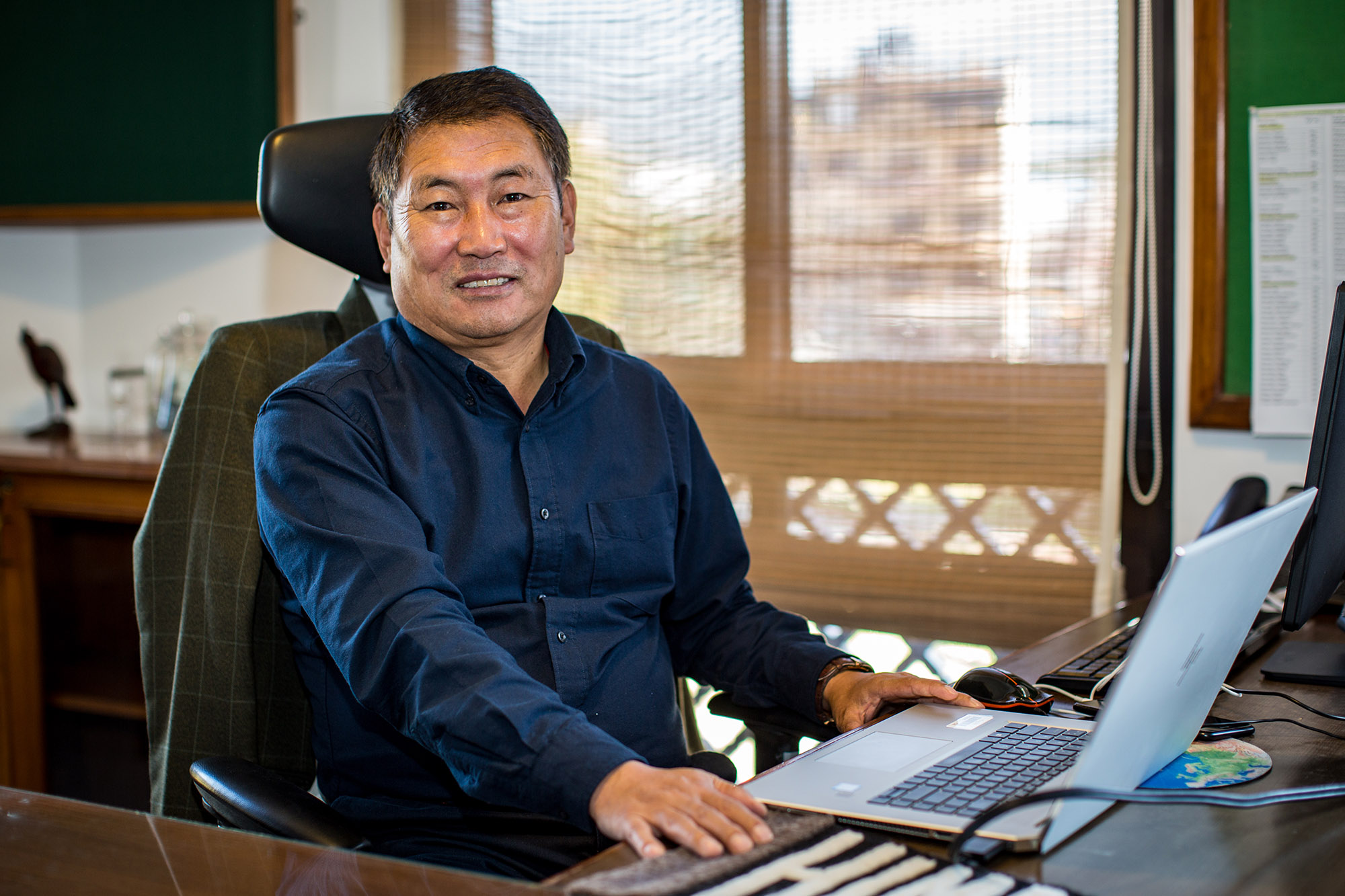“Time to walk the talk on climate change in the Himalaya”

The newly-appointed Director General of the International Centre for Integrated Mountain Development (ICIMOD) Pema Gyamtsho began his tenure during the Ministerial Mountain Summit which took place virtually in October. He has a PhD in Natural Science from the Swiss Federal Institute of Technology in Zurich and worked for the Bhutan government for over three decades, providing environmental leadership and expanding community forests. Nepali Times caught up with Pema Gyamtsho on the occasion of International Mountain Day, 11 December.
Nepali Times: Congratulations on being the first person from the region to head ICIMOD. As someone from the Himalaya itself, do you think it gives you a different perspective than your predecessors?
Thank you. I am indeed honored to be the first person from the region to have this privilege to serve as the Director General of ICIMOD. I am confident that being a son of the soil, I will be able to provide a different perspective given my empathy for the region and my experience at various levels from community-based rural development work to policy and decision making as a former cabinet minister in the Government of Bhutan. I believe that I have an innate understanding of the challenges that our mountains and mountain communities are facing and the opportunities that are available for addressing them. All my predecessors have made valuable contributions towards fulfilling the vision and mission of ICIMOD, and it will be my endeavour to not only carry on their legacies but also build on their contributions to significantly enhance ICIMOD’s status regionally and globally as a centre of excellence.
What is going to be the thrust of your tenure at ICIMOD, is there any particular area of research that you personally are excited about?
I would like to push for a more vibrant collaboration among our regional member countries and strengthen their ownership and stewardship of ICIMOD towards addressing common challenges and exigencies brought about by climate change on the physical state of the mountains, the health of the diverse ecosystems and the livelihoods of the people. Due attention needs to be given to the management of water, right from the ice bodies and glacial lakes to the rivers, streams and springs. Water gives and supports lives, but also takes away and destroys them. A concerted research and development intervention in this field will enhance the safety, security and wellness of people living both within the mountains and downstream areas.
There has been a lot of research on how the climate crisis is affecting the Himalaya. We all know the mountains are melting much faster than anticipated, do we really need more research, isn't it time to push for action?
I can’t agree with you more on this. I think there is enough evidence for us to push for action. The Hindu Kush-Himalaya Call to Action that has been endorsed by our eight member countries at the Ministerial Mountain Summit through a joint declaration is deeply significant and timely. Now it is time to walk the talk, from mitigation measures to reduce greenhouse gas emissions from industries, agriculture and transport sectors to adaptation measures through promotion of alternatives. The introduction of ‘Zig-Zag’ brick kilns is a good example of how industries can adapt. Likewise, concerted efforts to promote crops that are drought resistant and can absorb other climatic shocks should be made while we also need to find solutions to the burning of agriculture debris. Likewise, the transport sector must adapt to use of clean energy instead of fossil fuels.


Local people in the mountains feel like they do not get much out of research scientists do on the glaciers and rivers. Is there a better way to link scientists with local people, and apply the knowledge gained more directly to the ground reality?
ICIMOD is already engaged in involving the communities in most of its programs, including in river basin management. Providing early warning and preventing disasters from events like glacier lake outburst floods directly impact the communities. Of course, there is a need to better link research and science with policy and practice so that grassroot level benefits are seen and felt.
ICIMOD just convened a virtual conference of environmental ministers, are we any further in the plans to set up a Himalayan Council?
The Ministerial Mountain Summit is definitely an historic step in ICIMOD’s journey. The Ministerial Declaration lays out a clear roadmap for the countries to come together to address urgent issues of climate change, ecosystems degradation, and sustainable livelihoods. We will be pursuing the establishment of an institutional mechanism such as a Himalayan Council rigorously but at a pace that is in sync with the priorities of our member countries.
How does it feel to be back in Nepal?
Indeed, it is my second innings at ICIMOD having worked here previously as a natural resources policy specialist. I am deeply grateful to the people and Government of Nepal for not only generously hosting ICIMOD but also for the warm hospitality extended to me personally. I have always enjoyed the friendship and support of my colleagues from Nepal and other countries and will try to build a strong and dedicated team that reflects the diversity of nationalities, cultures, professional expertise and disciplines that can respond effectively to the challenges that our region is facing.




